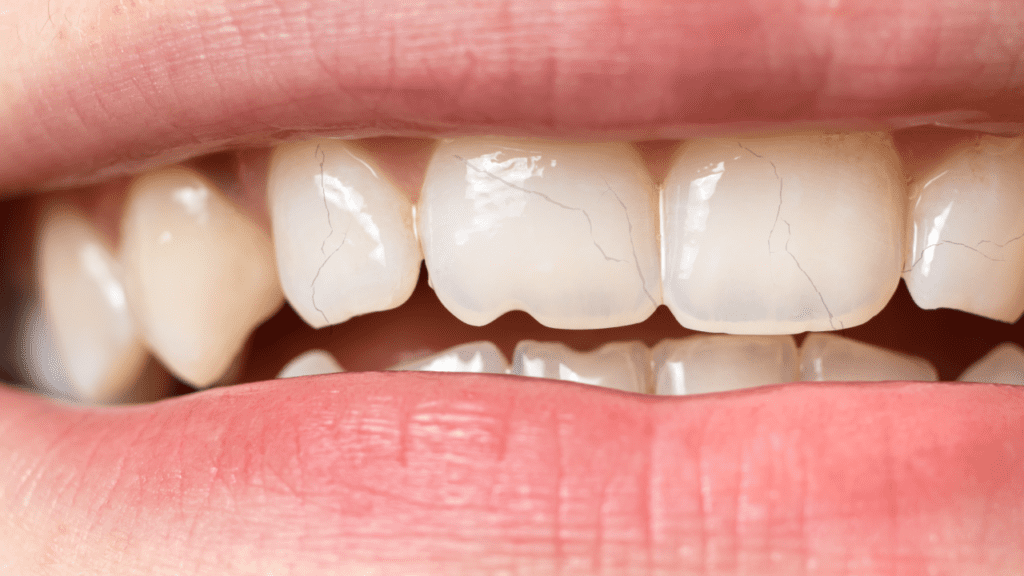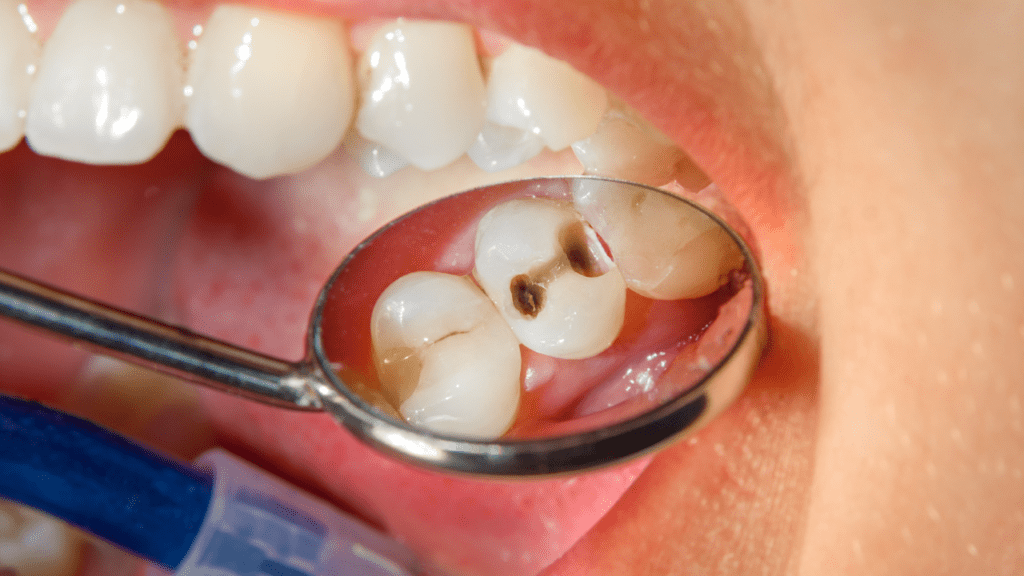Toothaches are no laughing matter. If you’ve ever experienced extreme tooth pain, you know how excruciating and debilitating it can be. The throbbing, shooting pain can make even the simplest activities unbearable, let alone trying to catch some much-needed sleep.
In this article, we’ll explore the causes of toothaches, discuss strategies for getting some rest despite the agony, and provide tips to prevent tooth pain from ruining your much-needed rest.
What Causes Toothaches?
To understand toothaches, we must first delve into the root causes. The most common culprit is tooth decay. When bacteria accumulate in your mouth, they produce acid that erodes the protective enamel of your teeth, leading to cavities. If left untreated, these cavities can expose the sensitive inner layers of your tooth, resulting in intense pain.
Another common cause is dental abscesses, which occur when a bacterial infection spreads to the tooth’s root. Abscesses can be extremely painful, often accompanied by swelling and pus formation. Additionally, tooth fractures, gum disease, impacted wisdom teeth, and dental trauma can all contribute to toothaches.
How Do You Sleep with Unbearable Tooth Pain?
When extreme tooth pain strikes, finding relief can feel nearly impossible, especially when it’s time to sleep. Here are a few strategies to help you cope:
- Elevate your head: Prop yourself up with an extra pillow or two. Elevating your head can reduce blood flow to the affected area, potentially alleviating some of the throbbing pain.
- Apply a cold compress: Gently pressing a cold compress or ice pack against your cheek can numb the area and temporarily numb the pain.
- Practice relaxation techniques: Engaging in relaxation exercises, such as deep breathing or guided meditation, can help distract your mind from the pain and promote a more restful state.
- Over-the-counter pain relief: Non-prescription painkillers like acetaminophen or ibuprofen may provide temporary relief, but be sure to follow the recommended dosage and consult a healthcare professional if the pain persists.
- Oral numbing gels: Topical numbing gels containing benzocaine can temporarily numb the affected area and offer short-term relief from tooth pain.
- Avoid triggers: Stay away from sugar and sticky candy which can also exacerbate the pain.
Remember, these remedies are only temporary solutions. It’s crucial to visit a dentist to address the underlying cause of your toothache and receive appropriate treatment.
Why Does Toothache Hurt More at Night?
If you’ve experienced a toothache, you might have noticed that the pain intensifies when the sun goes down. The reason behind this phenomenon lies in our body’s natural circadian rhythm. At night, blood flow to the head increases, leading to more blood rushing to the affected tooth. This increased blood flow can amplify the pain signals, making toothaches feel more intense during bedtime.
Additionally, lying down horizontally can also worsen tooth pain. When you’re upright during the day, gravity helps drain excess fluids from your head, reducing inflammation and pressure around the affected tooth. However, when you lie down, this drainage mechanism becomes less effective, causing fluid buildup and intensifying the pain.
When Is Tooth Pain Bad Enough for the ER?
While most toothaches can be managed by visiting a dentist, there are instances where seeking emergency care becomes necessary.
If you experience any of the following symptoms, consider going to the emergency room:
- Severe swelling: If your face or jaw is noticeably swollen, especially if it begins to affect your breathing, seek immediate medical attention.
- High fever: A persistent high fever accompanied by severe tooth pain can indicate a serious infection that requires immediate medical intervention.
- Uncontrolled bleeding: If your toothache is accompanied by profuse bleeding that you can’t stop, it’s crucial to seek emergency care as soon as possible.
- Trauma or injury: If your toothache is the result of a significant trauma or injury to your mouth, it’s important to have it evaluated by a healthcare professional to rule out any fractures or other severe damage.
- Signs of an abscess: Abscesses are pockets of infection that can cause intense pain, swelling, and even pus formation. If you notice any of these symptoms, especially if they are rapidly worsening, it’s essential to seek immediate medical attention.
- Is something missing?
Remember, the emergency room should be reserved for true emergencies. For most toothaches that are not accompanied by severe symptoms, it’s best to schedule an appointment with your dentist during regular office hours.
How to Prevent Toothache at Night?
Prevention is always better than cure, and taking steps to prevent toothaches can help save you from countless sleepless nights. Here are some tips to keep tooth pain at bay:
- Maintain good oral hygiene: Brush your teeth at least twice a day, floss regularly, and rinse with an antimicrobial mouthwash. These simple practices help remove plaque and bacteria, reducing the risk of tooth decay and gum disease.
- Visit your dentist regularly: Regular dental check-ups and cleanings allow your dentist to identify and address any potential dental issues before they escalate into toothaches. Schedule appointments every six months or as recommended by your dental professional.
- Watch your diet: Limit your consumption of sugary foods and drinks, as they can contribute to tooth decay. Opt for a balanced diet rich in fruits, vegetables, and dairy products to promote overall dental health.
- Avoid grinding your teeth: Teeth grinding, also known as bruxism, can lead to tooth sensitivity and pain. Consider wearing a mouthguard at night to protect your teeth from grinding and alleviate associated pain.
- Address dental issues promptly: If you notice any signs of tooth decay, gum disease, or other dental problems, don’t delay seeking treatment. The earlier you address these issues, the less likely they are to develop into severe toothaches.
Remember, even with excellent preventive measures, toothaches can still occur. If you do experience extreme tooth pain, don’t hesitate to reach out to your dentist for professional evaluation and treatment.
Conclusion
Dealing with extreme tooth pain that disrupts your sleep can be an agonizing experience. Understanding the causes of toothaches, finding ways to manage the pain, and taking preventive measures can significantly improve your quality of life. While temporary remedies can provide relief, it’s crucial to address the underlying cause of the toothache by seeking professional dental care.
By following good oral hygiene practices, visiting your dentist regularly, and promptly addressing dental issues, you can minimize the chances of experiencing extreme tooth pain that keeps you awake at night. Remember, a healthy smile contributes not only to your physical well-being but also to your overall happiness and peace of mind.
WebMD
aae.org
NHS
Healthline
Related Articles
Small Cavities: Everything You Need To Know + Treatment
Dr. Sharna is a Pediatric Dentist from Marlboro, NJ. With a Doctorate in Dental Medicine, she graduated at the top of her class and pursued specialized training in Pediatric Dentistry at Albert Einstein College of Medicine/Montefiore Medical Center. Dr. Sharna is a Board Certified Pediatric Dentist, dedicated to providing exceptional care to children while ensuring their dental visits are enjoyable.
Marcus Ramsey has been a professional writer for over seven years. He has talked about and produced content for industries like Dentistry, Healthcare, and more.






